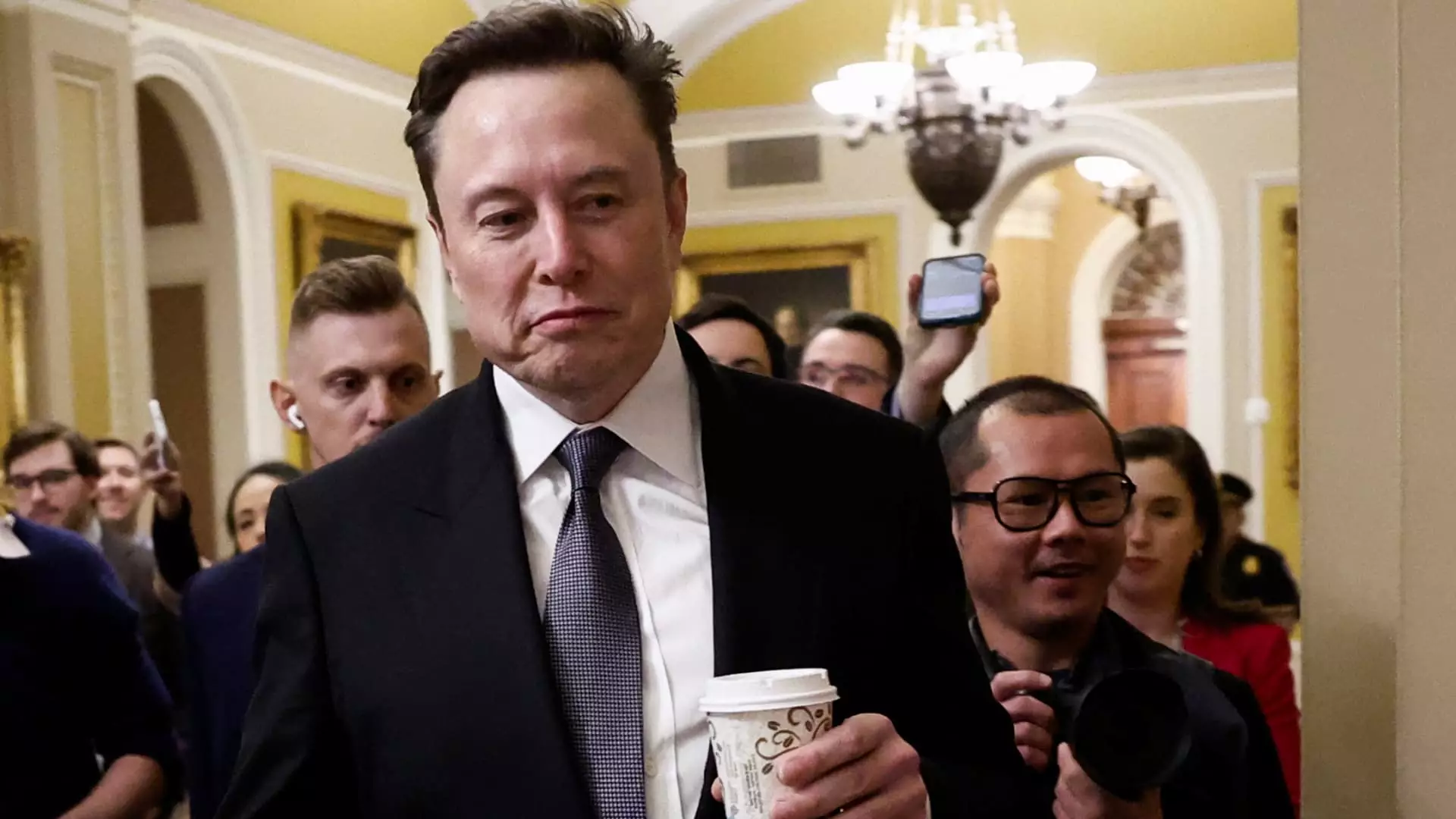The ever-evolving relationship between technology, global economic interests, and politics has taken a fascinating and troubling turn in recent months. House Democrats, particularly Jim McGovern from Massachusetts and Rosa DeLauro from Connecticut, have accused some Republican legislators of capitulating to the demands of billionaire entrepreneur Elon Musk, thereby undermining a crucial bipartisan bill aimed at regulating U.S. investments in China. This dramatic twist in the legislative landscape not only raises principled questions about governance but also sheds light on the influences of individual power players in contemporary American politics.
Musk is no stranger to controversy, particularly with respect to his affiliations and business ventures. His electric vehicle company, Tesla, has established a formidable footprint in China—including a factory that operates without the typical requirement for a local joint venture. Furthermore, Musk’s aspirations extend into artificial intelligence and quantum computing tech, areas that are critical not only for economic competitiveness but also for national security. McGovern’s comments highlight the alarming prospect that Musk’s business interests stand at odds with the legislative aims to uphold American innovation and job retention.
The implications of Musk’s influence extend beyond mere economic considerations. To some observers, his business strategies illustrate an attempt to curry favor with Chinese authorities, raising red flags about potential compromises in national security. McGovern encapsulates this concern by emphasizing that Musk’s increasing alignment with the Chinese Communist Party could breed vulnerabilities within the broader cybersecurity landscape of the United States. The fear is palpable: that in Musk’s pursuit of profit and market dominance, he may inadvertently (or perhaps deliberately) jeopardize U.S. interests and security.
Musk’s business model hinges on access to lucrative markets—China being notably significant. His plans to establish an AI data center there raise uncomfortable questions. Is the pursuit of innovation worth the risk to national security? This crossroads of ethics and economics presents a deeply convoluted dilemma not just for American lawmakers, but for citizens who rely on their representatives to prioritize their welfare over the interests of major corporations.
The political landscape becomes even more intricate when we consider former President Donald Trump’s influence. His desire to dismantle bipartisan initiatives has intensified the fissures within Congress. As DeLauro indicated in a recent letter, the motivations behind Musk’s lobbying efforts are inseparable from the larger political maneuverings orchestrated by figures like Trump, who has endorsed anti-bipartisan sentiments. McGovern and DeLauro’s characterization of Musk as an almost presidential figure points to his growing influence—an indication that money and politics are disturbingly intertwined.
The stopgap funding bill that recently garnered bipartisan support highlights both the power and the delicacy of legislative agreements in today’s hyper-polarized environment. While it succeeded in staving off an immediate government shutdown, the exclusion of provisions aimed at curbing foreign investments by prominent, powerful figures is disconcerting to many Americans. Instead of addressing significant issues such as the budget and national security concerns tied to foreign investments, lawmakers found themselves sidetracked by personal vendettas and political calculations.
Elon Musk’s response to DeLauro’s criticisms—labeling her an “awful creature” through social media—adds yet another layer of complexity to this already tangled narrative. This personal attack underscores a disconcerting trend: when public figures step into the political realm, often they resort to personal slights rather than substantive discussions on the issues at hand. Such exchanges detract from the seriousness of national discourse and further entrench division.
Musk’s lucrative contributions to Republican efforts also cast a shadow over his intentions, raising questions about whether his interests are aligned with those of the broader populace or merely those of affluent stakeholders.
The interplay between technology, finance, and politics is fraught with challenges and ethical implications. As Congress grapples with critical issues regarding national security, economic competitiveness, and foreign policy, the interplay between individual interests and collective welfare should remain at the forefront. Policymakers must strive for responsible leadership that prioritizes the security and well-being of American citizens, rather than succumbing to the pressures exerted by powerful business figures like Musk. Only through conscientious and transparent governance can the public’ trust be restored in institutions that aim to foster progress without compromising the nation’s security.


Leave a Reply